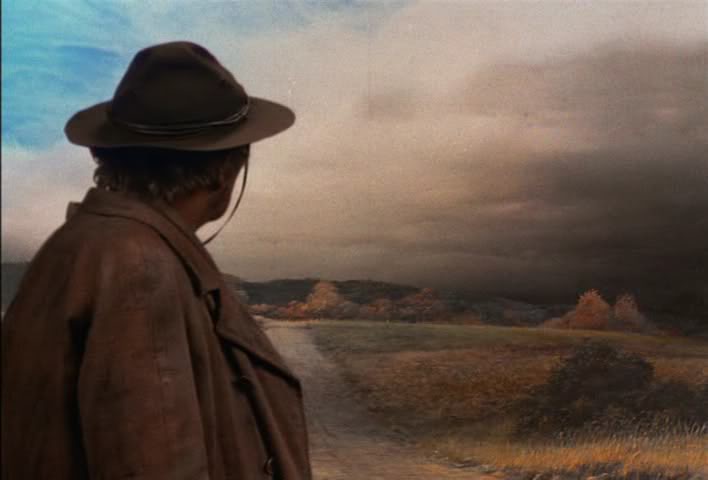juxtaposition
René Magritte was a famous surrealist painter who juxtaposed dissimilar items in the same painting. In his famous painting “The Son of Man,” he juxtaposed an apple on top of a man’s face. Magritte said that this was his self-portrait.
The reasons why Magritte painted himself with an apple in front of his face are not important to me today. Today, I am exploring ways that writers juxtapose words together for any number of reasons.

In Something Wicked This Way Comes, Tom Fury is the seller of lightning rods who happens upon a small town in Illinois. Here is how Ray Bradbury described on of Fury’s lightning rods:
“The entire surface of the rod was finely scratched and etched with strange languages, names that could tie the tongue or break the jaw, numerals that added to incomprehensible sums, pictographs of insect-animals all bristle, chaff, and claw. ‘That’s Egyptian.’ Jim pointed his nose at a bug soldered to the iron.
‘Scarab beetle.’
‘So it is, boy!’
Jim squinted. ‘And those there – Phoenician hen tracks,’
‘Right!’
‘Why?’ asked Jim.
‘Why?’ said the man. ‘Why the Egyptian, Arabic, Abyssinian, Choctaw? Well, what tongue does the wind talk? What nationality is a storm? What country do rains come from? What colour is lightning? Where does thunder go when it dies? Boys, you got to be ready in every dialect with every shape and form to hex the St Elmo’s fires, the balls of blue light that prowl the earth like sizzling cats. I got the only lightning-rods in the world that hear, feel, know, and sass back any storm, no matter what tongue, voice, or sign. No foreign thunder so loud this rod can’t soft-talk it!’” Bradbury – Something Wicked This Way Comes, pgs. 7-8.
Ray Bradbury was a wordsmith, and he juxtaposed many sets of words together. The reader is asked to plunge into the river of cross currents that the word groups form. The images come fast, and the reader must flap around wildly, simply in an effort to survive the waves. If the reader is fortunate enough, he will have managed to glean some understanding from the groups of words–a type of understanding that is somehow richer than it might have been if any of the comparative words had been mentioned alone. Bradbury’s description of the library is another example of a long string of words and phrases that Bradbury effectively juxtaposed together:
But here in the special night, a land bricked with paper and leather, anything might happen, always did. Listen! and you heard ten thousand people screaming so high only dogs feathered their ears. A million folk ran toting cannons, sharpening guillotines; Chinese, four abreast, marched on forever. Invisible, silent, yes, but Jim and Will had the gift of ears and noses as well as the gift of tongues. This was a factory of spices from far countries. Here alien deserts slumbered. Up front was the desk where the nice old lady, Miss Watriss, purple-stamped your books, but down off away were Tibet and Antarctica, the Congo. There went Miss Wills, the other librarian, through Outer Mongolia, calmly toting fragments of Peiping and Yokohama and the Celebes. Way down the third book corridor, an oldish man whispered his broom along in the dark, mounding the fallen spices. . . . Bradbury, Something Wicked, pg. 12.
In the following passage, Bradbury describes the way that the town shifts as it switches from Friday afternoons at work to Friday nights:
Will looked at the Friday night town.
It seemed when the first stroke of nine banged from the big courthouse clock all the lights were on and business humming in the shops. But by the time the last stroke of nine shook everyone’s fillings in his teeth, the barbers had yanked off the sheets, powdered the customers, trotted them forth; the druggist’s fount had stopped fizzing like a nest of snakes, the insect neons everywhere had ceased buzzing, and the vast glittering acreage of the dime store with its ten billion metal, glass and paper oddments waiting to be fished over, suddenly blacked out. Shades slithered, doors boomed, keys rattled their bones in locks, people fled with hordes of torn newspaper mice nibbling their heels. Bang! they were gone! Bradbury, Something Wicked, pg. 19.